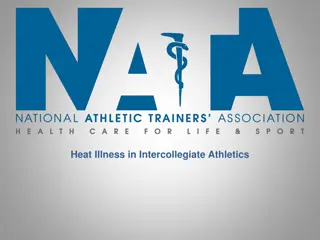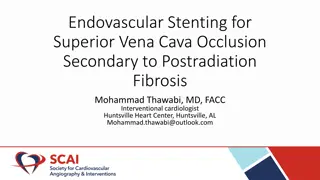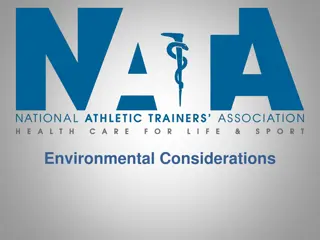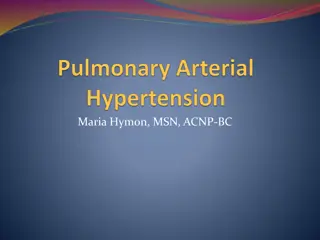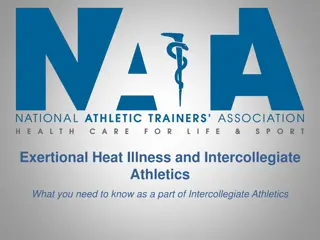Prevention and Treatment of Heat Illness in Intercollegiate Athletics
Learn about exertional heat illness prevention strategies, identification of predisposed athletes, and treatment approaches for heat cramps and heat exhaustion in intercollegiate athletics. Proper hydration, acclimatization, education, and monitoring are crucial for athlete safety during high heat s
1 views • 10 slides
Endovascular Stenting for Superior Vena Cava Occlusion: A Case Study
Superior Vena Cava (SVC) occlusion secondary to postradiation fibrosis is a rare condition that can lead to debilitating symptoms. In this case study, a 47-year-old male with a history of Hodgkin lymphoma treated with chest radiotherapy presented with exertional chest pain and other associated sympt
1 views • 19 slides
Clinical Practice Guidelines for Rhabdomyolysis: Management and Recommendations
Rhabdomyolysis is a condition with a significant impact on kidney function, requiring prompt clinical management to prevent morbidity and mortality. This article discusses the prevalence, patient population criteria, admission criteria, treatment options, and potential complications associated with
1 views • 13 slides
Understanding Azoturia in Horses: Causes, Symptoms, and Treatment
Azoturia, also known as exertional rhabdomyolysis or tying-up syndrome, is a multifactorial myopathy that mainly affects draft horses. It is characterized by stiffness in gait, reluctance to move, lameness, and myoglobinuria. The disease typically occurs during exercise after a period of rest and ca
0 views • 14 slides
Comprehensive Environmental Considerations for Athletes
This detailed guide covers essential environmental considerations for athletes, including exercising in various conditions, prevention of exertional heat illness, recognition of cold-related injuries, and risk factors for exertional heat illness. The provided recommendations help in preventing heat-
0 views • 20 slides
Understanding Pulmonary Arterial Hypertension (PAH): Causes, Symptoms, and Management
Pulmonary Arterial Hypertension (PAH) is a progressive disease characterized by increased blood pressure in the pulmonary artery, veins, or capillaries. This condition can lead to right ventricular failure and eventual death if left untreated. PAH can have various causes, including idiopathic factor
0 views • 49 slides
Managing Exertional Heat Illness in Intercollegiate Athletics
This resource provides essential information on exertional heat illness (EHI) in intercollegiate athletics, including intrinsic and extrinsic risk factors, general risk reduction considerations, dehydration management, and heat cramps. Recognizing, treating, and preventing EHI is crucial for athlete
0 views • 10 slides
